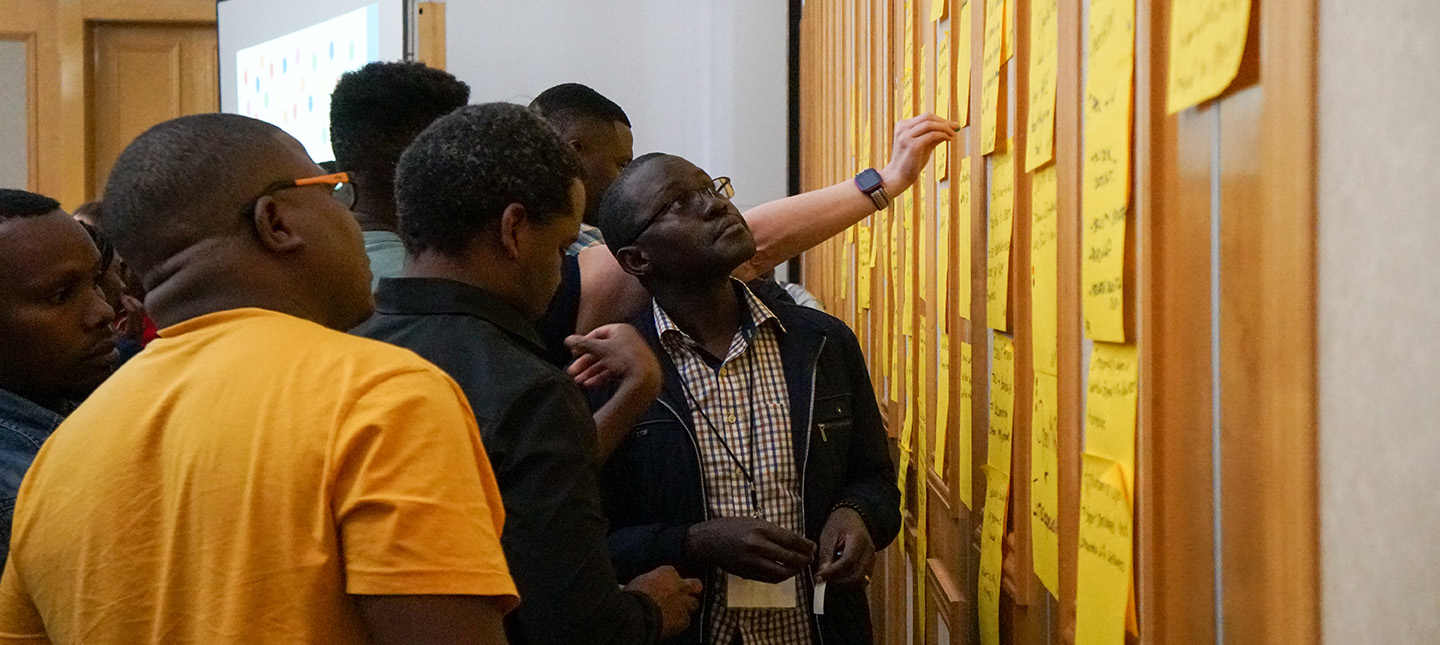Ministry of Health – Malawi hosts OpenHIE, Regenstrief professionals for international meeting
 The OpenHIE Community Meeting, May 1-5, 2023, in Lilongwe, Malawi, provided a forum for individuals across the globe to collaborate and share ideas about the development and implementation of efficient and effective national and regional health information exchanges.
The OpenHIE Community Meeting, May 1-5, 2023, in Lilongwe, Malawi, provided a forum for individuals across the globe to collaborate and share ideas about the development and implementation of efficient and effective national and regional health information exchanges.
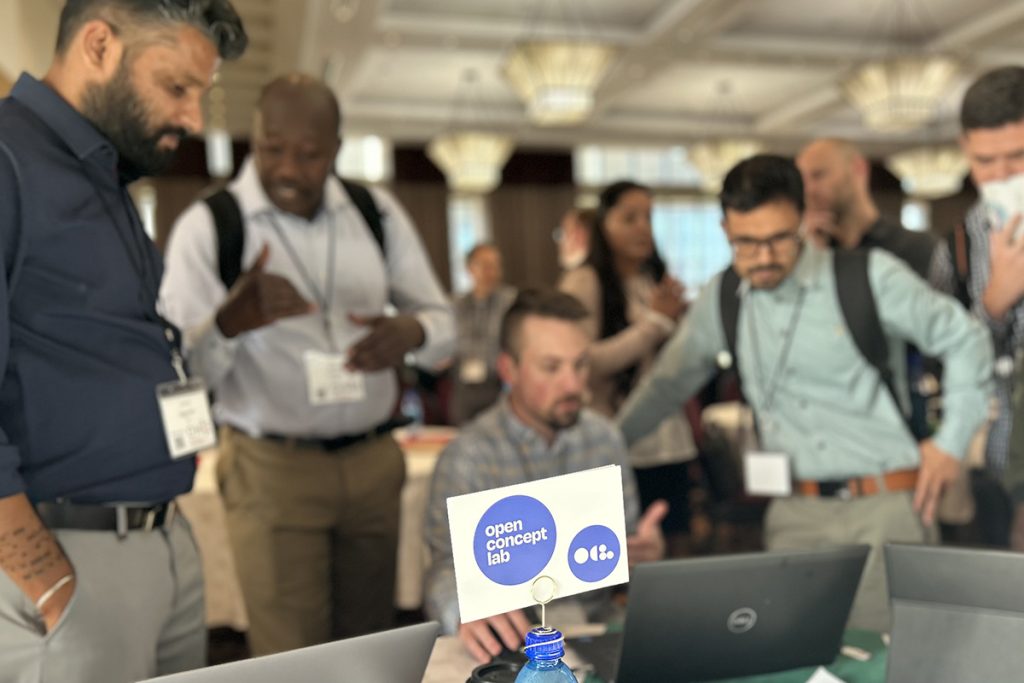 Attendees at the Lilongwe meeting, which the Ministry of Health – Malawi hosted in partnership with the OpenHIE community, included representatives of the ministries of health and other government organizations of African countries, including Ethiopia, Tanzania and Uganda; the World Health Organization (WHO); U.S. Centers for Disease Control and Prevention (CDC); U.S. President’s Emergency Plan for AIDS Relief (PEPFAR); and other stakeholders and various groups that provide technical services.
Attendees at the Lilongwe meeting, which the Ministry of Health – Malawi hosted in partnership with the OpenHIE community, included representatives of the ministries of health and other government organizations of African countries, including Ethiopia, Tanzania and Uganda; the World Health Organization (WHO); U.S. Centers for Disease Control and Prevention (CDC); U.S. President’s Emergency Plan for AIDS Relief (PEPFAR); and other stakeholders and various groups that provide technical services.
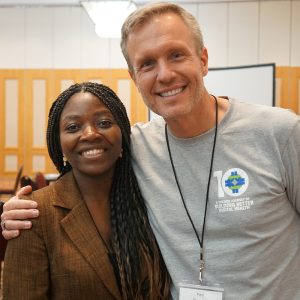 Regenstrief Institute research scientists and professional staff play key roles to organize and facilitate conference sessions and manage OpenHIE year-round alongside the international community members and country meeting hosts. The meeting enabled government officials, clinicians, information technology architects, integration specialists, process designers, software developers and others to connect and learn from each other’s experiences. The OpenHIE community launched 10 years ago.
Regenstrief Institute research scientists and professional staff play key roles to organize and facilitate conference sessions and manage OpenHIE year-round alongside the international community members and country meeting hosts. The meeting enabled government officials, clinicians, information technology architects, integration specialists, process designers, software developers and others to connect and learn from each other’s experiences. The OpenHIE community launched 10 years ago.
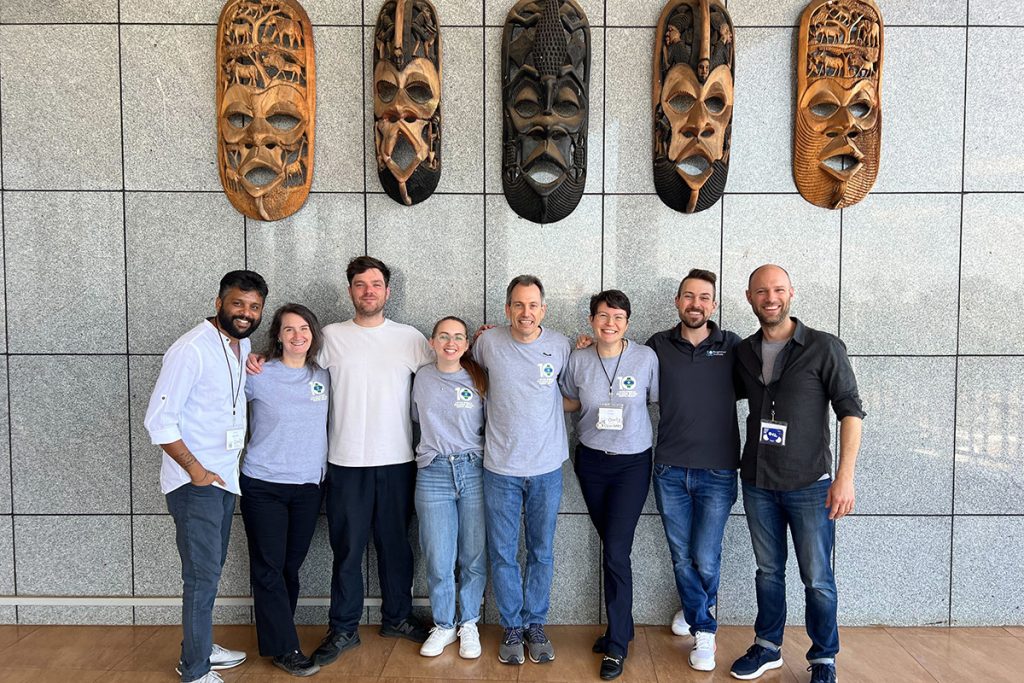 “Reciprocity is the fuel of the OpenHIE community. In 2023, we’re seeing national strategies translated into practice with greater country ownership of their health information system plans,” said Regenstrief Institute Research Scientist Paul Biondich, M.D., M.S., who directs the Institute’s Global Health Informatics Program and opened the proceedings with the Honorable Khumbize Kandodo Chiponda, the Minister of Health in the Government of Malawi.
“Reciprocity is the fuel of the OpenHIE community. In 2023, we’re seeing national strategies translated into practice with greater country ownership of their health information system plans,” said Regenstrief Institute Research Scientist Paul Biondich, M.D., M.S., who directs the Institute’s Global Health Informatics Program and opened the proceedings with the Honorable Khumbize Kandodo Chiponda, the Minister of Health in the Government of Malawi.
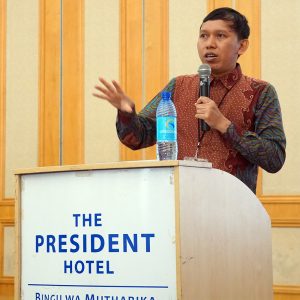 “The meeting was an excellent opportunity for people from diverse perspectives to share their experiences and lessons learned in the creation of interoperable health systems,” said Senior Integration Architect Jennifer Shivers, MFA.
“The meeting was an excellent opportunity for people from diverse perspectives to share their experiences and lessons learned in the creation of interoperable health systems,” said Senior Integration Architect Jennifer Shivers, MFA.
OpenHIE, short for Open Health Information Exchange, is a global, mission-driven collective dedicated to improving the health of the underserved through the open, collaborative development of implementation tools and supporting country-driven, large-scale health information exchange. Health information exchanges provide an electronic system enabling patients’ medical information to be securely, appropriately and effectively shared with clinicians and health systems to facilitate care and treatment.
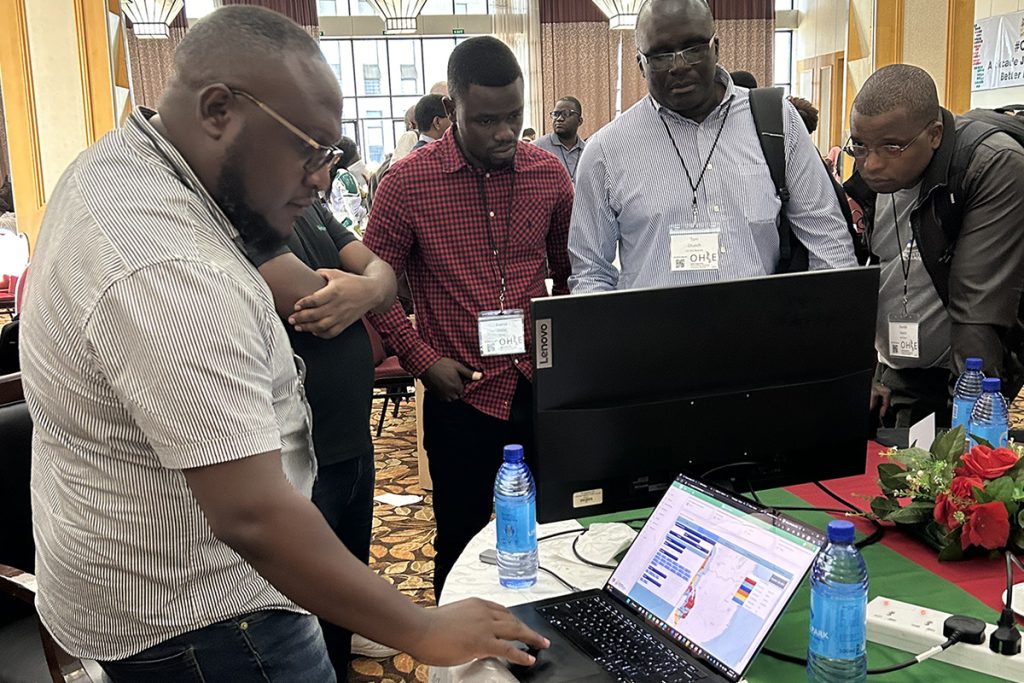 Health information systems typically operate independently. The result is disaggregated information stored in different locations and formats, making data integration difficult or impossible and creating either improbably high obstacles to overcome or prohibiting healthcare personnel from sharing knowledge, collaborating in care and understanding the full breadth of an individual’s health history.
Health information systems typically operate independently. The result is disaggregated information stored in different locations and formats, making data integration difficult or impossible and creating either improbably high obstacles to overcome or prohibiting healthcare personnel from sharing knowledge, collaborating in care and understanding the full breadth of an individual’s health history.
OpenHIE’s goal is to resolve secure data communication and exchange problems from the ground up, not with fixes imposed from the top.
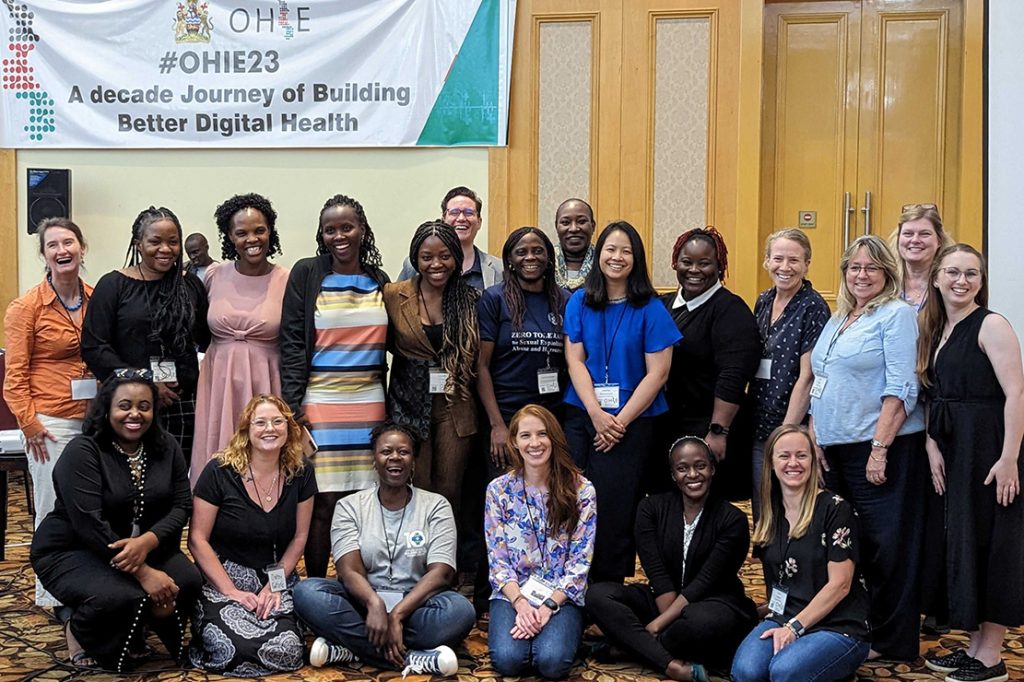 Several Regenstrief Institute delegates served in facilitator roles during the conference. Senior Integration Architect Jennifer Shivers, MFA, and Project Manager Christopher Bell, M.A., MPH, planned and co-facilitated community participation of the Architecture Summit, focused on planning for better documentation of FHIR recommendations and use. During the technical showcase session, Senior Technical Advisor Joseph Amlung, MPH, hosted a technical showcase table and co-facilitated a session about the Open Concept Lab (OCL), a suite of tools that includes the FHIR-enabled OCL Terminology Server, the OCL TermBrowser, and the OpenMRS Dictionary Manager. OCL helps countries and organizations manage, publish and customize standard terminology. To open and close the week, Mary Pittman, Dr. Biondich and members of the Ministry of Health – Malawi hosted cognitive collaborative sessions focused on patient identity management. Country teams connected on biometrics, policy and privacy issues related to their patient identity implementations.
Several Regenstrief Institute delegates served in facilitator roles during the conference. Senior Integration Architect Jennifer Shivers, MFA, and Project Manager Christopher Bell, M.A., MPH, planned and co-facilitated community participation of the Architecture Summit, focused on planning for better documentation of FHIR recommendations and use. During the technical showcase session, Senior Technical Advisor Joseph Amlung, MPH, hosted a technical showcase table and co-facilitated a session about the Open Concept Lab (OCL), a suite of tools that includes the FHIR-enabled OCL Terminology Server, the OCL TermBrowser, and the OpenMRS Dictionary Manager. OCL helps countries and organizations manage, publish and customize standard terminology. To open and close the week, Mary Pittman, Dr. Biondich and members of the Ministry of Health – Malawi hosted cognitive collaborative sessions focused on patient identity management. Country teams connected on biometrics, policy and privacy issues related to their patient identity implementations.
 Additional Regenstrief Institute participants and conference organizers included Research Scientist Burke Mamlin, M.D.; Senior Community Manager Jamie Thomas; Community Manager Kasey Upchurch; Project Coordinator Shelby Guthrie, MPA; and Project Manager Mary Pittman, MPH.
Additional Regenstrief Institute participants and conference organizers included Research Scientist Burke Mamlin, M.D.; Senior Community Manager Jamie Thomas; Community Manager Kasey Upchurch; Project Coordinator Shelby Guthrie, MPA; and Project Manager Mary Pittman, MPH.
Health information systems typically operate independently. The result is disaggregated information stored in different locations and formats, making data integration difficult or impossible and creating either improbably high obstacles to overcome or prohibiting healthcare personnel from sharing knowledge, collaborating in care and understanding the full breadth of an individual’s health history.
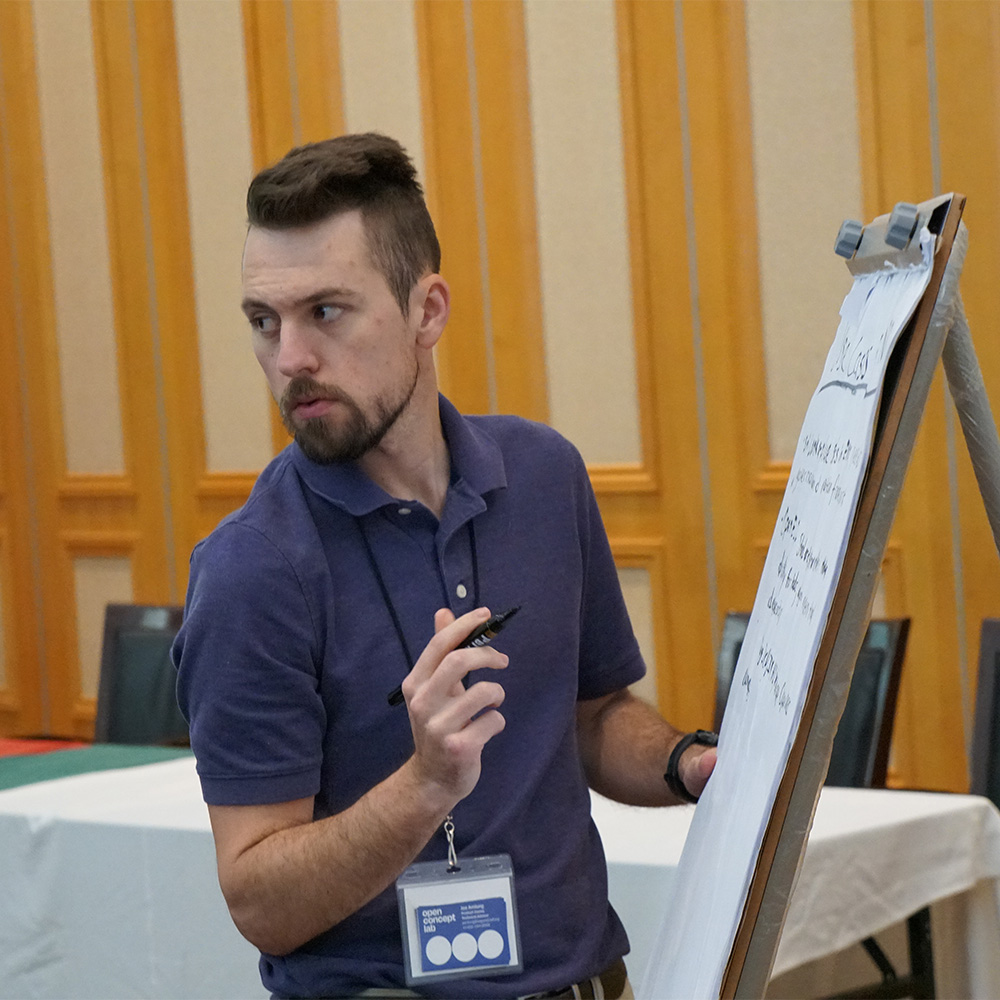 In addition to scheduled talks, the meeting agenda included “unconference” sessions during which OpenHIE community members presented topics relevant to their specific health information exchange implementations. Amlung co-led the unconference session on data dictionaries and terminologies.
In addition to scheduled talks, the meeting agenda included “unconference” sessions during which OpenHIE community members presented topics relevant to their specific health information exchange implementations. Amlung co-led the unconference session on data dictionaries and terminologies.
“Regenstrief Institute, a founding partner organization and the secretariat for the OpenHIE community is proud to witness the community’s growth,” said Shivers, a key leader for OpenHIE. “It was inspiring to see countries like Malawi, and others around the globe, collaborate in the development of health data sharing architectures that will be transformative for so many. We are facilitating others to transform their worlds.”
The OpenHIE community was formed in early 2013, evolving from work that began in 2009 to establish the Rwandan Health Information Exchange (RHIE). This was work an outgrowth of pioneering work by Regenstrief Institute to establish one of Africa’s first electronic medical record systems. As the benefits of that approach became apparent, interest gathered from other countries looking to apply similar architectural tactics within their environments. Today, OpenHIE’s methods, reference technologies and community processes are being leveraged or explored in numerous countries.
About Regenstrief Institute
Founded in 1969 in Indianapolis, the Regenstrief Institute is a local, national and global leader dedicated to a world where better information empowers people to end disease and realize true health. A key research partner to Indiana University, Regenstrief and its research scientists are responsible for a growing number of major healthcare innovations and studies. Examples range from the development of global health information technology standards that enable the use and interoperability of electronic health records to improving patient-physician communications, to creating models of care that inform practice and improve the lives of patients around the globe.
Sam Regenstrief, a nationally successful entrepreneur from Connersville, Indiana, founded the institute with the goal of making healthcare more efficient and accessible for everyone. His vision continues to guide the institute’s research mission.





